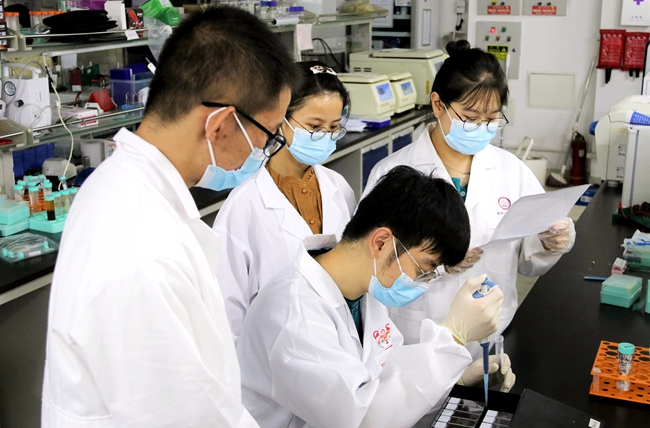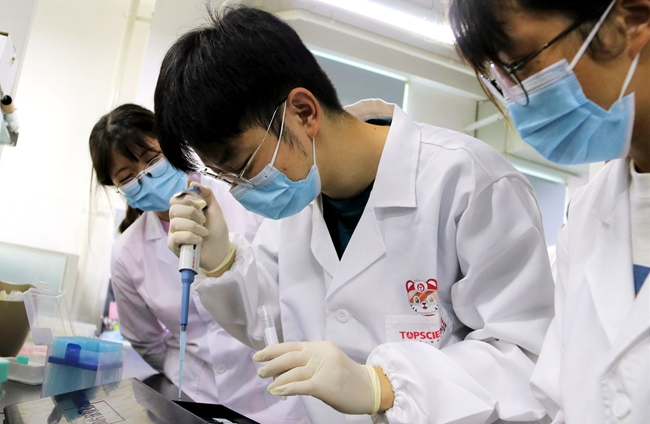A Student Research Team at Nankai University develops New Technology to Help Cancer patients Select Grug Accurately
Recently, the AccRate student entrepreneurship team of the College of Pharmacy, Nankai University, has for the first time developed an accurate and efficient detection technology for drug sensitivity, and named it AccRate Technology. This technology can predict the effectiveness of drug to patients before medication, which helps patients with more accurate medication.
The research group of Zhang Heng, a doctoral student from the College of Pharmacy, Nankai University, had been focusing on the research and development of antitumor drugs. While studying drug targets, a drug probe is needed for experiments, which made the research group think: Whether the drug probe can be used to dye the tissue specimen to realize the visualization of drug effect, and thus to help patients with more accurate medication.
After that, the team verified this idea through further experiments, developed an accurate and efficient detection technology for drug sensitivity, and named it AccRate Technology.

AccRate team members are experimenting

Schematic diagram of the principle of AccRate Technology
Whether the targeting drug is effective for a patient can be predicted with staining intensity within 4 hours by using this technology to process the pathological section of the patient.

Detection results of multiple liver cancer specimens by AccRate Technology

AccRate team members observe and image under a microscope

AccRate team members are experimenting
Compared with the existing drug sensitivity detection technology, AccRate Technology features higher accuracy, lower cost (more than ten times lower than that of traditional technologies) and shorter time (the detection time is about 4 hours, and the results can be obtained on the same day). Moreover, the required sample is the pathological section obtained when the patient is diagnosed. There is no need to puncture or operate again to obtain the sample, which reduces the pain of the patient.
At present, the project team has cooperated with a number of hospitals to further expand the scale of clinical trials. The existing data show that: The accuracy of this technique in predicting drug efficacy can reach 95%. Several investment institutions and enterprises have expressed concern and affirmative about the AccRate project.
(Reported by Kun Fu, edited and translated by Nankai News Team.)









